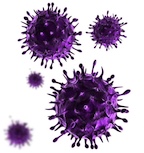
The Wonders of Propolis:
A Deep Dive into Its Benefits & Potential Against COVID-19
By Mark J Kaylor
Propolis, often referred to as “bee glue,” is a resinous substance that bees produce by mixing their saliva and beeswax with exudate gathered from tree buds, sap flows, or other botanical sources. This sticky, greenish-brown product has been used for centuries in traditional medicine for its purported health benefits. In recent years, scientific research has begun to validate many of these traditional uses, and new studies are exploring its potential in combating modern health challenges, including COVID-19.
Historical Uses of Propolis
The use of propolis dates back to ancient civilizations. The Egyptians, Greeks, and Romans all utilized propolis for its medicinal properties. The Egyptians, for instance, used it in the mummification process due to its antibacterial properties. The Greeks and Romans applied it to wounds and abscesses to promote healing and prevent infection. In traditional Chinese medicine, propolis has been used to treat various ailments, including sores and ulcers.
Types of Propolis
Propolis can be categorized into three main types based on its botanical origin and geographical location: brown, green, and red.
- Brown Propolis: This is the most common type and is typically found in temperate regions. It is derived from the resin of poplar trees and other coniferous trees. Brown propolis is rich in flavonoids and phenolic acids, which contribute to its strong antioxidant and antimicrobial properties.
- Green Propolis: Predominantly found in Brazil, green propolis is sourced from the Baccharis dracunculifolia plant. It contains high levels of artepillin C, a compound known for its potent anti-inflammatory and anticancer properties. Green propolis is often used in dietary supplements and skincare products due to its health-promoting effects.
- Red Propolis: This rare type is primarily harvested in Cuba and Brazil. It is derived from the resin of the Dalbergia ecastaphyllum plant. Red propolis is rich in isoflavonoids, which have been shown to possess strong antioxidant, antimicrobial, and anti-inflammatory properties. It is often used in traditional medicine to treat infections and inflammatory conditions.
Research-Based Benefits of Propolis
- Antimicrobial Properties: Propolis has been shown to exhibit broad-spectrum antimicrobial activity against bacteria, viruses, and fungi. Its effectiveness against antibiotic-resistant bacteria makes it a promising candidate for developing new antimicrobial agents.
- Anti-Inflammatory Effects: The flavonoids and phenolic acids in propolis have potent anti-inflammatory properties. These compounds inhibit the production of pro-inflammatory cytokines, which can help reduce inflammation and promote healing.
- Antioxidant Activity: Propolis is rich in antioxidants, which help neutralize free radicals and protect cells from oxidative damage. This can contribute to overall health and may reduce the risk of chronic diseases such as cancer and heart disease.
- Wound Healing: Propolis has been used traditionally to promote wound healing. Modern research supports this use, showing that propolis can enhance tissue regeneration and reduce the risk of infection in wounds.
Propolis and COVID-19
The COVID-19 pandemic has spurred interest in natural products with potential antiviral properties. Recent studies suggest that propolis may have a role in the fight against COVID-19. Here are some key findings:
- Antiviral Activity: Laboratory studies have shown that propolis extracts can inhibit the replication of various viruses, including coronaviruses. The exact mechanism is not fully understood, but it is believed that the flavonoids and other bioactive compounds in propolis interfere with viral entry and replication.

- Immune Modulation: Propolis has been shown to modulate the immune system, enhancing the body’s ability to fight off infections. It can stimulate the production of antibodies and increase the activity of immune cells, which may help in the defense against viral infections like COVID-19.
- Anti-Inflammatory Effects: Severe COVID-19 cases are often associated with a hyperinflammatory response known as a cytokine storm. The anti-inflammatory properties of propolis may help mitigate this response, potentially reducing the severity of the disease.
- Clinical Studies: While more research is needed, preliminary clinical studies have shown that propolis supplementation may improve symptoms and outcomes in COVID-19 patients. For example, a study conducted in Brazil found that COVID-19 patients who received propolis had a shorter hospital stay and a lower incidence of complications compared to those who did not receive propolis.
Propolis, Promising Ally Against COVID-19
Propolis is a remarkable natural substance with a rich history of medicinal use. Modern research is beginning to uncover the mechanisms behind its health benefits, validating its traditional uses and exploring new applications. The potential of propolis in the fight against COVID-19 is particularly exciting, offering a glimmer of hope in these challenging times. As research continues, propolis may well become an important tool in our arsenal against viral infections and other health challenges.
Mark J. Kaylor is a passionate advocate for holistic health and natural remedies, with a focus on extending both lifespan and healthspan. As the founder of the Radiant Health Project and host of Radiant Health Podcast, Mark blends in-depth research with traditional wisdom to empower others on their journey to vibrant health. Through his writing and speaking, he shares insights into the transformative power of herbs, nutrition, and lifestyle practices.
Disclaimer: All information and results stated here is for educational and entertainment purposes only. The information mentioned here is not specific medical advice for any individual and is not intended to be used for self-diagnosis or treatment. This content should not substitute medical advice from a health professional. Always consult your health practitioner regarding any health or medical conditions.



